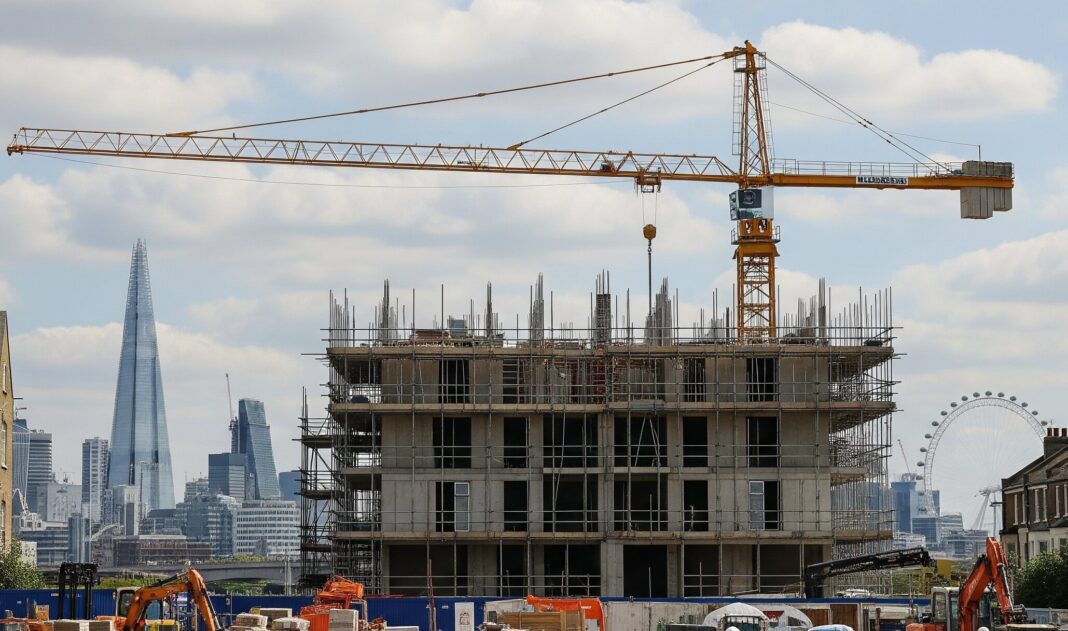The number of new private homes being built in London has collapsed to less than a quarter of peak levels with mounting delays and rising costs stalling development across the capital.
According to analysis by Knight Frank, just 2,200 new private homes were started in the first half of this year – barely 5% of the government’s annual target for the city and a 77% fall compared with the market peak in 2015.
Oliver Knight, Head of UK Residential Development Research at Knight Frank, says the slowdown reflected “mounting regulatory and financial hurdles” that were stretching project lead-in times to record levels.
Drawing on data from Molior, Knight Frank analysed nearly 700 sites of at least 100 homes. It found the average time from initial application to the start of construction rose to 26 months last year, compared with 17 months in 2015 and 13 months in 2013.
PLANNING SCRUTINY
While planning permission often attracts the most scrutiny, Knight says the greatest delays are now occurring after local authorities have resolved to grant consent.
The time from resolution to full permission has increased by 76% since 2015, driven by resource shortages in borough planning teams and protracted negotiations over financial contributions.
These difficulties are being compounded by weakening demand. Sales of new private homes in the first half of 2025 totalled just 3,950 – the lowest level since 2010.
Developers cite the impact of higher stamp duty, surging mortgage rates and the end of Help to Buy, alongside additional taxes and levies such as the Building Safety Levy and Community Infrastructure Levy.
SHRINKING PIPELINE

Knight says: “The combination of falling demand and rising costs is undermining viability, particularly for high-density speculative schemes.
“Without action, the pipeline of new homes in London will continue to shrink.”
Knight wants to see greater flexibility from planners, including amending Section 106 agreements when schemes run into difficulty, alongside measures to restore confidence among buyers.
He adds: “Funding and buy-side support are vital. Reform of stamp duty and incentives for off-plan buyers would give developers the confidence to build. Removing the roadblocks that add risk and hinder viability should be the top priority.”










